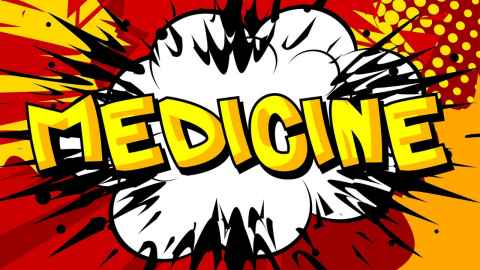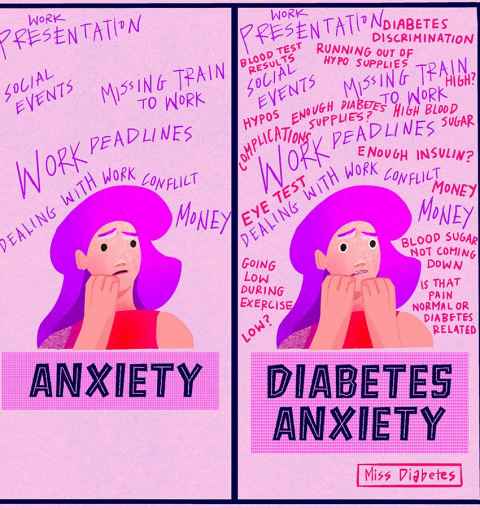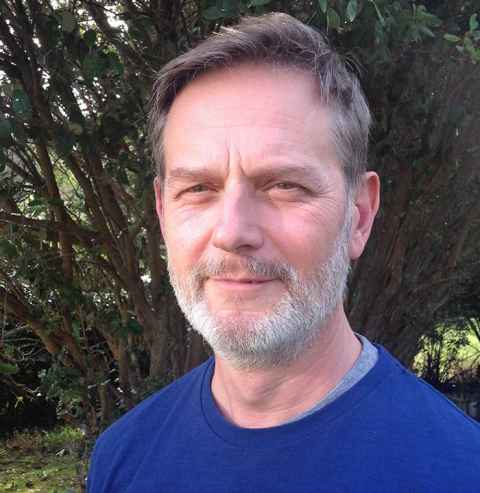Comics a no-brainer for bringing research to life
16 October 2023
A collaboration between a University of Auckland academic who specialises in comics, brain researchers and illustrators aims to raise awareness of brain tumours.

What do comics and brain research have in common? One can creatively and succinctly explain the other, says Professor Neal Curtis, a specialist in comics studies at Waipapa Taumata Rau, the University of Auckland.
An academic interest in comics, combined with a plan to convey scientific knowledge in an accessible and engaging way, has led the Faculty of Arts lecturer in Media and Screen Studies to collaborate with brain researchers and illustrators on an ambitious new project.
Curtis will be partnering with the University’s Centre for Brain Research and a newly established national neuro-oncology group on eight comics dealing with various issues connected to brain tumours.
Within the ever-expanding comics area, the subfields of graphic medicine and graphic science are exciting ones, he says.
“This is where comics and health, medical and scientific issues intersect. They can be anything from biographies of significant people to histories of medical developments, and there are some early examples of comics being used to disseminate knowledge and teach.”
But he says the really big area for graphic medicine has been patient testimony, where people tell their stories of illness, disease and surgery.
“If you think of the institutional approach to medicine, it’s from a universalising perspective. It takes certain symptoms and translates them into a universal condition that it can diagnose and develop a prognosis.
“However, early graphic medicine was about moving from the universal back to the particular to make sure individual patients and their contexts weren’t forgotten; it was good at articulating what the medical establishment couldn’t.”

An early example, he says, is by a French artist known only as ‘David B’ who was living with a brother with severe epilepsy; another famous early comic featured obsessive-compulsive disorder.
“Since then, there's been comics on cancer, mental health issues like depression and anxiety, and more recently on neurodivergence, ADHD, ADD and autism; it’s become its own mini cottage industry,” he says.
Curtis says some of these comics were finding their way into teaching hospitals to help clinicians develop empathy and understanding.
And the brain, as an incredibly complex and vital organ, seemed to lend itself to comic treatment, he realised, after attending a cross-faculty ideas and funding workshop where Dr Thomas Park, a senior research fellow in pharmacology, asked him if he wanted to be involved with a project to advocate for brain tumour research.
“They want to establish a brain tumour registry (a detailed database for all types of brain tumours), as well as clinical trials in New Zealand, because we're the only developed nation that doesn't have its own registry.”
While he had been wondering about why he was there “among all these scientists”, as a person with background in political and critical theory, social media, graphic novels and comics, he suddenly realised what he could offer.
“I could tell everybody about the importance of comics for this form of patient testimony as well as for explaining complex information in an accessible way.”

The result so far is funding from the University coupled with a Health Research Council grant for four six-page comics on: helping people understand the testing process for brain tumours; one aimed at children of parents with tumours to explain the psychological and behavioural changes their parents might be experiencing; a comic on brain tumour research and one aimed at Māori communities, explaining symptoms and support networks for people living with tumours.
A further four will be devoted to patient testimony from people living with a high-grade malignant tumour, a low-grade malignant tumour and a non-malignant tumour (and post-operative recovery), and the fourth will be the story of a carer.
The first artist involved – there will be several – is Janina Gaudin, known as ‘Miss Diabetes’, a New Zealand/Samoan comic illustrator who creates comics about life with Type 1 diabetes, among many other projects.
Curtis is hopeful that these comics, which will be hosted on the University of Auckland website as well as that of Brain Tumour Support, will not only raise awareness and understanding of brain cancer, often the poor cousin to more high profile cancers, but also be of high visual quality and innovation.
“I want them to be beautiful, not institutional, which some of these sorts of things can be. And Janina’s work is wonderful, so I have high hopes.”
As for himself, he is energised with the new direction his research is taking, moving away from “taking things apart to putting things back together”.
“I would describe myself as a ‘depressed optimist’, but I have to admit that spending three years writing about white supremacy and fascism for my book Hate in Precarious Times, (Bloomsbury, 2021) was starting to be very depressing.
“With these projects, and many more like them, I hope to build on the work of great people like [New Zealand illustrator] Toby Morris and our own Dr Siouxsie Wiles and do my bit to defend science; to defend the real against the emergence of the unreal or ‘alternative facts’ that we’ve seen so prominently, and worryingly, since the pandemic in particular.”
Media contact
Julianne Evans | Media adviser
M: 027 562 5868
E: julianne.evans@auckland.ac.nz